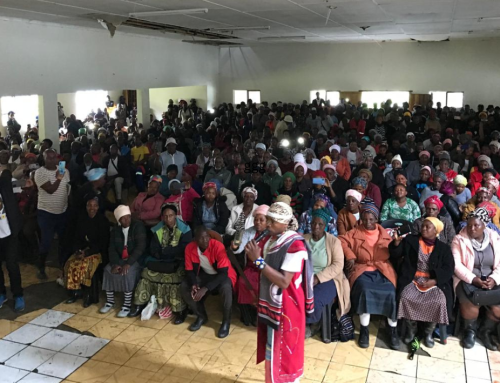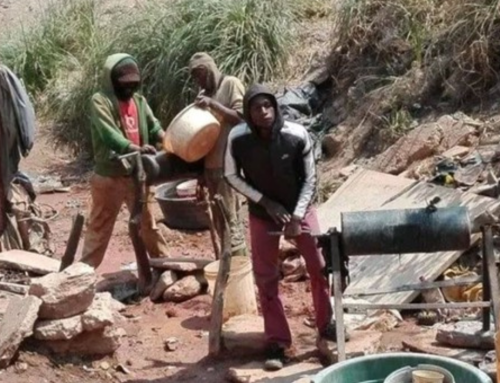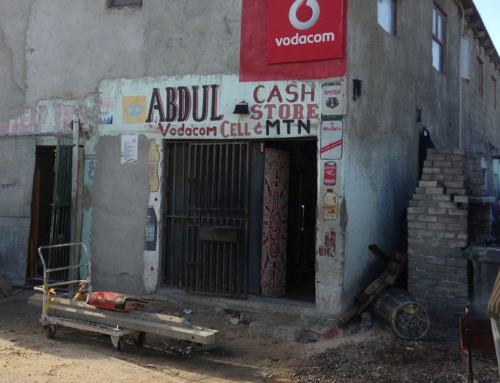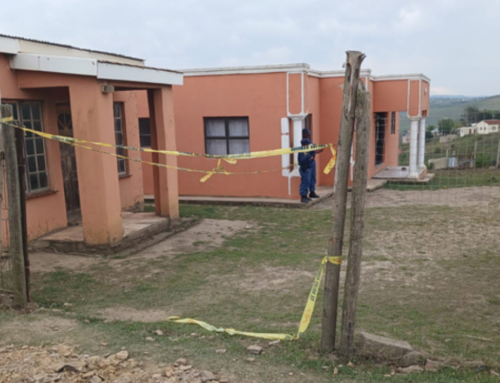 Mr Geordin Hill-Lewis
Mr Geordin Hill-Lewis
Executive Mayor of the City of Cape Town
Private Bag X9181
Cape Town
8000
Dear Mayor Hill-Lewis
Treatment of Zolani Njiva by the City of Cape Town Traffic Services: a case study of the treatment of the taxi industry in Cape Town and whether the City is wilfully killing the industry
1. I wish to raise with you the matter of the impoundment of my cousin, Mr Zolani Njiva’s taxi, which was impounded on 19 May 2023 (Impound notice number R105971/811/013024), the reason for which had been that he does not possess a permit to operate. Let me hasten to add that Mr Njiva had in fact applied for his permit in 2020/2021 and because it has yet to be processed, he unfortunately had risked operating without a permit.
2. Mr Njiva transitioned from being a lifelong petrol attendant at Caltex to becoming an entrepreneur in 2020 by acquiring a taxi, utilising his life savings for the purchase. He had invested in the taxi industry to better himself and to create opportunities for him and his family and their futures.
Mr Njiva’s commitment to entrepreneurship is evident as he used his pension money to purchase a second vehicle, further solidifying his dedication to his new venture. His entire future and livelihood, as well as the well-being of his family, are dependent on the success of his investment in the taxi industry.
3. Mr Njiva faced a significant obstacle when his vehicle was impounded, with the impound fee totalling a substantial R7,000. Due to his financial situation, he was unable to gather the required funds to release the vehicle from the impound lot. This situation created a challenging Catch-22 scenario for Mr Njiva: without the ability to generate income, he could not pay the impound fee, yet leaving the vehicle in the impound lot further hindered his ability to generate income.
4. To navigate the Municipal Court System, Mr Njiva had to enlist the services of a lawyer, incurring an additional cost of R2,000, which he did not have. Additionally, the driver of the vehicle was fined an extra R2500. He had to pay that as well before his vehicle could be released to him. There had been instances in the past where Mr Njiva’s drivers would be arrested while his taxi was being impounded. He was morally obliged to bail out the driver for R500 to R1000, further adding to the financial burden.
Despite receiving a rebate from the judge on the impoundment fee, Mr Njiva found himself thousands of rands out of pocket.
5. Ultimately, this entire ordeal led him to the Gallows Hill Traffic Department in Green Point, only to be up for another nasty surprise.
6. Because City of Cape Town Traffic Services (the latter being a misnomer, which will become apparent as I continue to explain) will not release a vehicle to a person with a warrant issued against them, Mr Njiva enlisted my help to free the vehicle in question from the impound lot.
Let me be clear from the outset that the only reason Mr Njiva has any warrants associated with his name, is because of the draconian traffic system in the City of Cape Town and not because he is a habitually criminal citizen.
7. At first Mr Njiva got shafted by officials and was informed his vehicle was not at the impound lot and they told him to “wait outside” for whatever inexplicable reason. Two hours had lapsed, and no-one called him back to explain to him what would be happening.
8. It was at this point that I chose to intervene. Now mind you Sir, I did not tell these officials who I was. This was an unnecessary fact to mention, as not all South Africans have on-the-spot access to a Member of Parliament in order to make officials do what they are supposed to do i.e. their jobs and to be civil to the citizens of this country.
It was not until the exchange got heated and a senior official/head of the unit threatened to physically remove me from the premises by way of security, when the security officer tasked to do so recognised me, that the tenor of the exchange then changed.
9. Mr Mayor, the City of Cape Town Traffic Officers at the Endabeni Impound Centre have the most inefficient, rudest staff there is. They treat their customers like dirt, because of a power trip or boredom, or for whatever reason, is unclear. I was shouted at and told to “Get out!” many times and I refused to comply. There is a parking lot, which the public is not allowed to use, and they must park in the streets. At the Endabeni/Maitland Impound Lot the person who is supposed to drive the vehicle must, if it cannot be the person who has come to free the vehicle, wait outside the compound. I have never experienced such ill treatment of people.
Once the bystanders realised who I was, I was mobbed by taxi owners who had stories similar to Mr Njiva’s to tell. Including how people’s possessions are stolen at the impound lots and that vehicles are not returned in the state in which they went to impound e.g. stolen radios, batteries and vehicle keys. A checklist system of people’s property would be an asset to the entire system and would protect government and the customer from unscrupulous forces who seek to abuse the current loopholes.
10. Once the situation had calmed down and the officials had miraculously found their helpful selves, we discovered out that Mr Njiva’s vehicle had been taken by the sheriff’s office, but there was no explanation on the system or documentary evidence as to why this had occurred. The Endabeni/Maitland Impound Lot had no record of the vehicle and did not know when it had been removed.
11. To be clear, Mr Njiva and I had arrived at the centre at 09:40 and it was only after 12:00, after I had intervened that he was informed that his vehicle had been repossessed by the bank. The sheriff arrived after 14:00 to confirm that the bank had in fact repossessed the vehicle and that they had discovered that the vehicle had been tampered with. We had then requested the Warrant of Execution and a copy of the report, which the sheriff has not provided even until now after having promised more than once that he would do so. In fact, the Sherrif had at our last point of contact (I had phoned him after he had indicated that he would contact me, but had not done so) asked for proof of ownership and proof of purchase from Mr Njiva.


13. You will note that the vehicle’s ignition was switched on, on 22 August 2023, which means that it was already moved from Cape Town to Gauteng within mere months of it being impounded. This all without Mr Njiva being notified and thus being deprived of an opportunity and a right to challenge the entire matter.
14. There must be a way for the sheriff’s and the City of Cape Town Traffic Services’ systems to talk to each other so that users can be informed about the statuses of their vehicles upon enquiry at one point; instead of being sent from pillar to post,
15. Regarding the alleged tampering with the vehicle, I do not wish to speculate on that as we were not informed about what it encompassed, but Mr Njiva bought it second hand from a person who had run scholar transport with it, and we would have taken up the matter with the previous owner.
16. Lastly Sir, Mr Njiva wishes to sell his vehicle, but cannot do so, because of the draconian bureaucratic Traffic System of the City of Cape Town. He has lost his original registration documentation but cannot ask for a reprint because of the fines attached to his name on the system; a system that is rigged against him because he does not have a permit, which he applied for in 2020/2021; a system that is designed to then punish him and his drivers for not having that permit.
17. Other taxi drivers/owners approached me with similar experiences involving the City’s traffic department. In one incident, after impounding a taxi, a traffic officer drove it to the impound lot, where the windscreen was hit by a stone from roadside grass cutting, resulting in a crack. The City refused to take responsibility for the damage, instructing the taxi owner to sue the grass-
cutting crew, despite them being city employees. Adding to the injustice, the vehicle was impounded because the traffic officer had dropped the taxi driver’s, driver’s license, and when ordered to pick it up, he refused. The officer then impounded the vehicle without any legal justification accusing him of refusing to obey the instruction of an officer.
18. As much as I appreciate the City’s efforts to crack down on lawlessness and to ensure that our commuters are safe, the City of Cape Town is actively killing the taxi industry, thus affecting the people using them, with these draconian regulations and their zealous enforcement, followed-up by horrendous treatment of taxi owners at the City of Cape Town Traffic Services and the impound lots.
Yours sincerely
Mr Nqabayomzi Kwankwa, MP
UDM Deputy President and Chief Whip





























